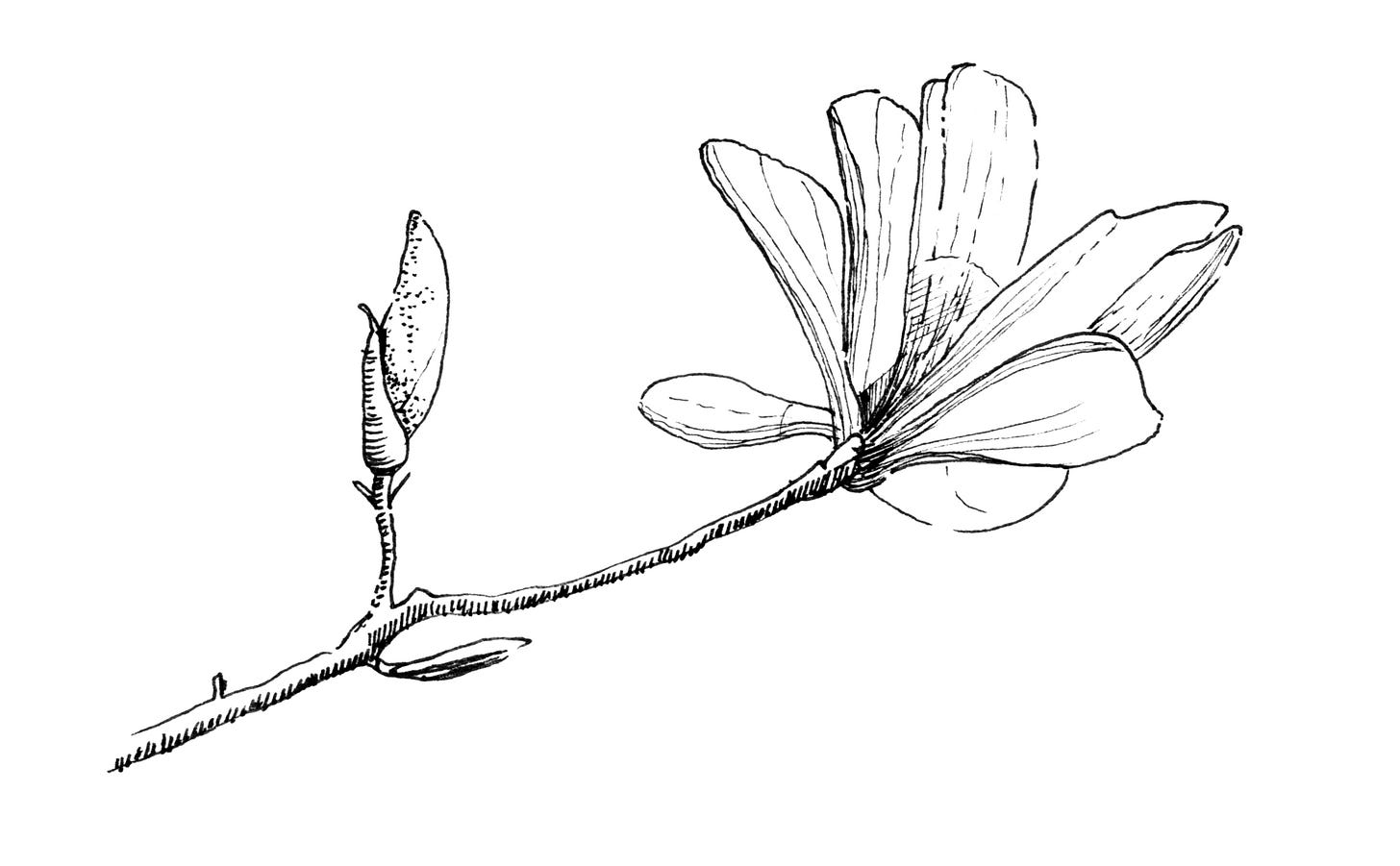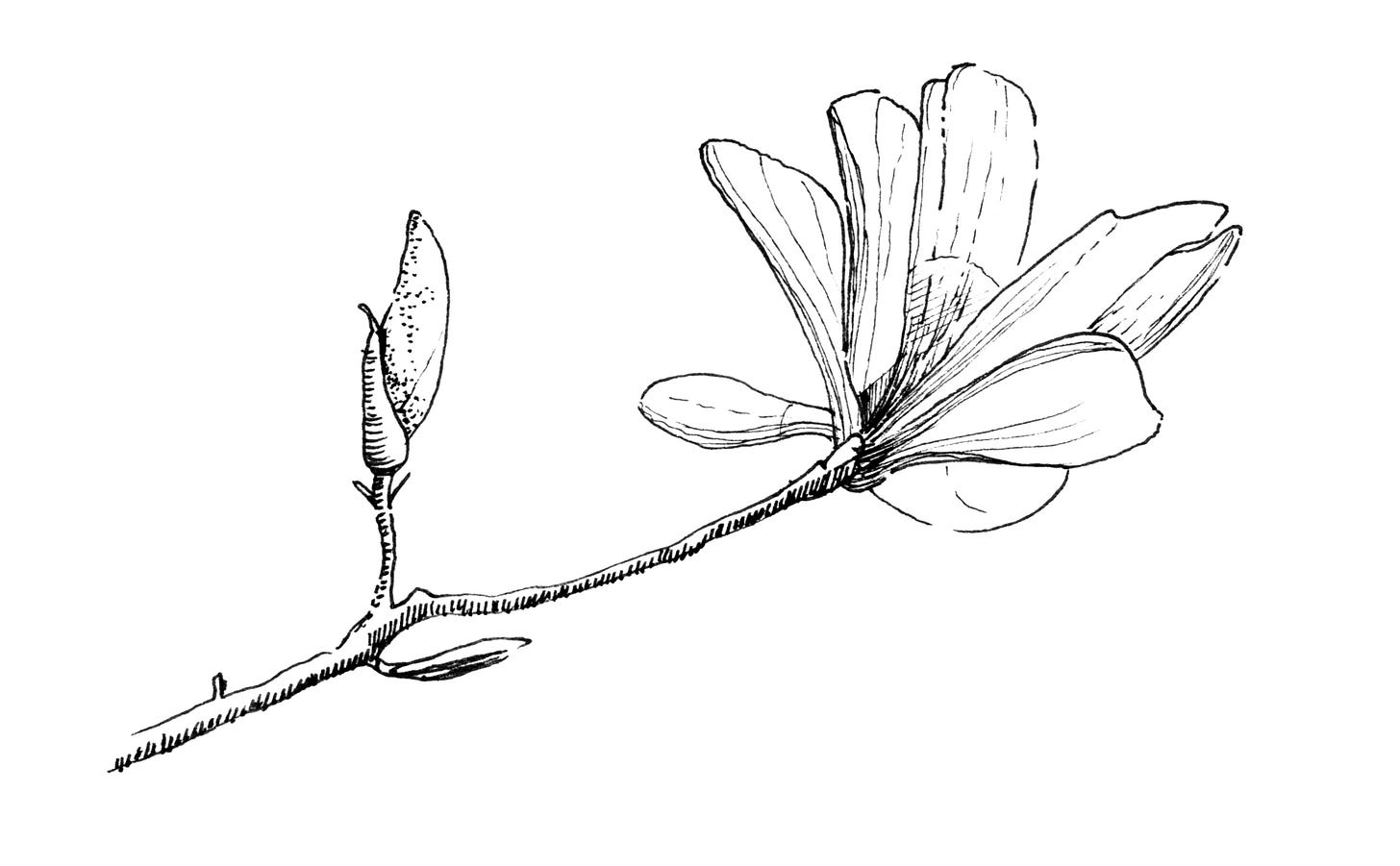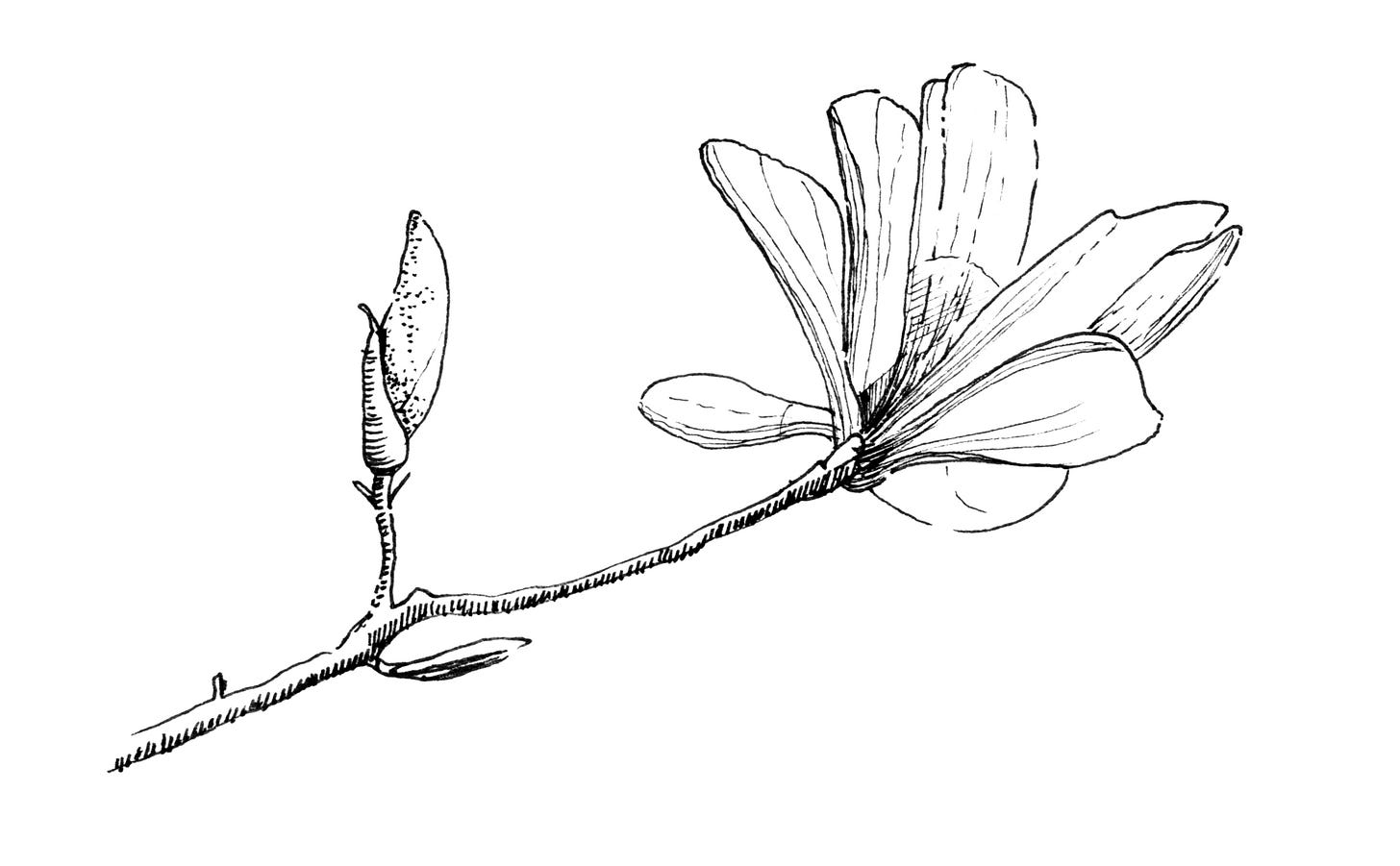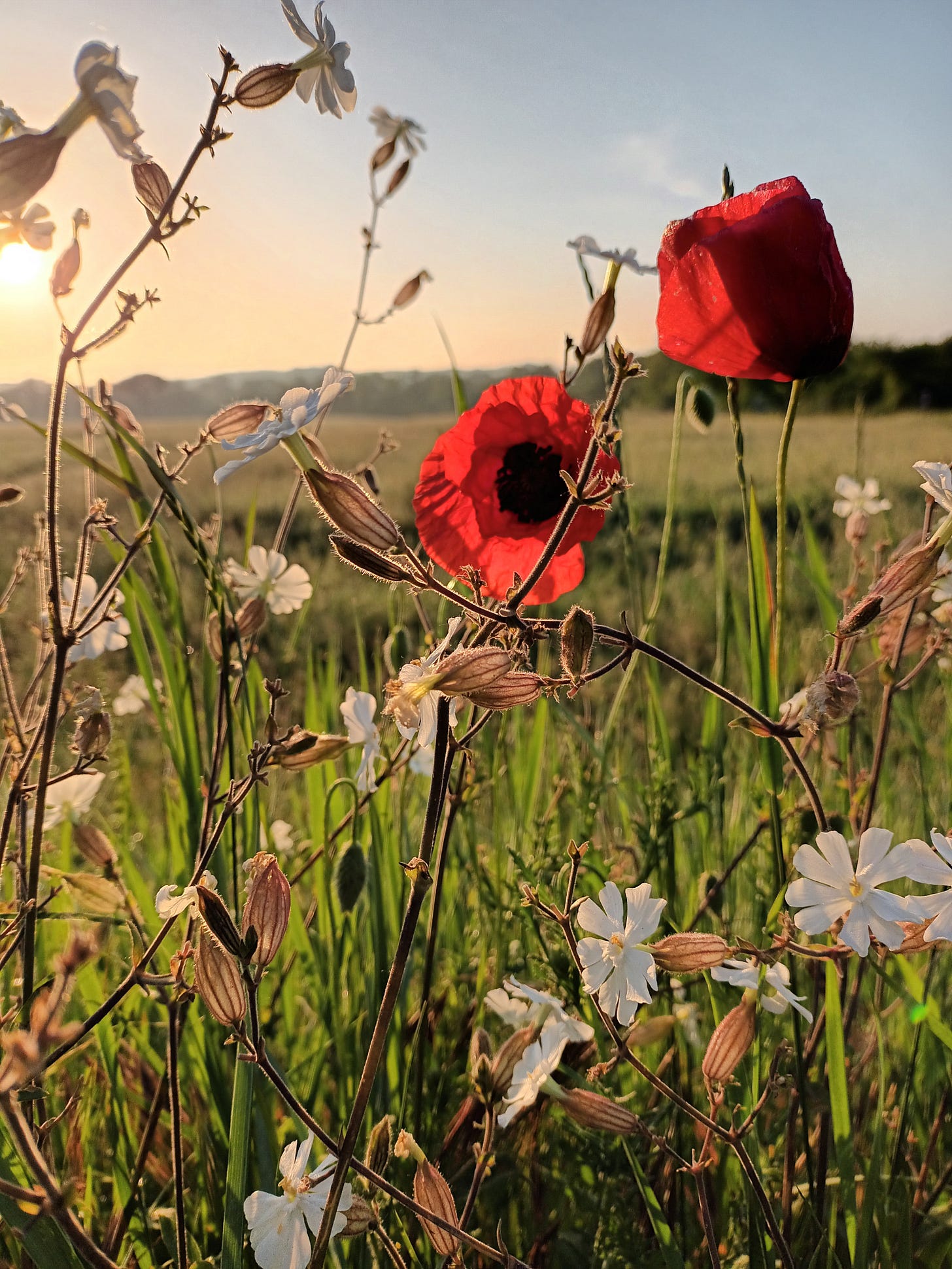Time and Tide
Notes on the Futility of Memory
Earlier this year, I made a trip to Cumborah, the village where dad wanted to be buried. A few days earlier, he had decided to stop taking his medication and placed himself into palliative care. His time was coming to an end and we were not prepared. The family dispatched me to Cumborah to choose and purchase a grave site. On the return trip, somewhere between Walgett and Coonamble, I hit the brakes and came to a stop by the edge of the B55 Highway. I had spotted sunflowers blooming in the red dirt by the side of the road and something made me want to take them to my father, to take to him a living thing from this part of Australia that he loved so much and would never see again.
When I arrived in Denman I took the flowers to the hospital, arranged in an empty smoothie cup that was decorated with green and yellow palm trees. I placed the flowers on the bedside table. By this stage dad was unable to move and every four hours the nurses would come into the room to turn him over. His emaciated hands were hugged close to his chest, as if bracing for whatever was to come. He had not eaten or drunk for days and was no longer able to speak but the flowers on the table caught his eye. I retrieved a sunflower and placed it in my father’s hand. His fingers could barely hold the stem but somehow, slowly and with great effort, he managed to raise the flower to his nose.
Time is money. Or so we have come to believe, a belief that has infiltrated our language when we speak of time. We try to save time, spend time, make time, make up time, find time, spare time, invest time, recover lost time. We attempt to balance our time between work and life, as if it were accounting books, as if work and life drew resources from separate buckets of time. But time is not money. It is not a commodity that is continually recycled, lost and found, made and spent. Time is the constant degradation of a finite resource.
Our attachment to memories is an effort to capture time and preserve it. A vain attempt to avoid the guilt associated with forgotten moments, to avoid the feeling that we have wasted our time, that time is slipping away. I kept a diary during my recent trip to Europe for that very reason, to account for my time, to preserve moments in time. I read back through the entries after arriving in Australia and I am not sure a best-selling book will ever come from that diary. This, a typical entry:
Salerno, 6 May. Lunch at Giagiu Pizzeria. Delightful service. Pizza with coffee froth and yellow cherry tomatoes. Local craft beer. Returned home for a siesta.
Reading the diary after a period of only three months made me realise how much of the trip I had already forgotten. Cities I had been to, people I had met, once in a lifetime lunches, memorable dinners…all forgotten if not for those few scrawled sentences.
My tenuous grasp on the immediate past should have come as no surprise. I could tell you where I was when I was 24 (somewhere in Brisbane) but I struggle to go beyond that level of detail. I thought I saw Bob Dylan in concert that year but when I check the records it was actually the year before that I saw Dylan. I once worked for the Consulate General of Cuba, but it requires a complex set of calculations and the retrieving and triangulation of various facts before I can confidently say that that occurred back in 2001. The disturbing fact is, when I look back on my life, whole years have disappeared and it begs the question, what have I done with my time?
It is not only years that have disappeared but people too. I spent three years sitting next to Adam Garside. We organised mouse races together at the school fair. I have no idea what became of him. And if people can so easily disappear, what then of the other countless sights, conversations and experiences that I have lived?
Of course, not everything has been forgotten. I can remember with absolutely clarity inconsequential things from thirty years ago. A model airplane stuck in the fork of a tree at Christmas time, the jingle for Louie the Fly, riding the old yellow school bus to school. Things of absolutely no importance, moments that were neither imbued with joy nor despair, moments experienced with close family or absolute strangers, it doesn’t seem to matter.
I can only conclude that there is no correlation between the use of time and memory. The mind chooses to remember what it will.
I haven’t kept up the diary writing since returning from Europe. The irony of the diary keeping exercise is that when I close my eyes and think of that trip the image that comes to mind isn't anything I wrote down. It's of travelling by train in Sicily through green fields splashed yellow and red with the spring bloom of wild fennel and poppies, a sight that went unremarked and unrecorded at the time but somehow remains, proof that we cannot know if an experience will remain caught in the firmament of our minds or lost to oblivion.
As I watched my father raise that sunflower to his face, my first thought was that it was not the time or place to be engaging in outrageous cliché. In better times, that would have been his reaction too. But it was not a conscious action, it was the natural act of a human being, with little time left, with little energy left, making a supreme effort to extract a last drop of joy from the world, a last goodbye with no hope of ever remembering it. And remembered or not, there was a dignity in that moment.
A life can never be remembered in full. Time resists capture. There is joy in memories, in recalling the past, but that joy is a shadow of the moment lived, a shadow that can never match the intensity or veracity of the actual experience. If a memory never forms, if a moment is lost to oblivion, then so be it.
If you enjoyed this post please leave a comment or hit the heart button. Doing so helps other people find it on Substack (and gives me a pleasant little dopamine hit). Or, if you are feeling really bold, share it with someone you think may also enjoy it. Thanks for stopping by.






“Our attachment to memories is an effort to capture time and preserve it. A vain attempt to avoid the guilt associated with forgotten moments, to avoid the feeling that we have wasted our time, that time is slipping away.”
Oh, to be a sunflower that worries not about the remembering.
Oh, to be a sunflower that simply is,
And with that existence gives a moment of happiness to someone else.
What a beautiful piece, Ryan. Thank you for sharing it.
I doubt you will ever forget your father raising that sunflower to his face, which clearly made such an impression on you. There is nothing cliche about the last moments of a dying man. Especially since you made a point of writing it down, here in this post or elsewhere. That is the point of memory. That is also the point of writing these moments down, so that later on if our brain falters, we will still have that moment.
I wrote down all the important moments when my husband was in the hospital dying of cancer, and kept a journal in the years before and since. My words, jotted down, have brought me nothing but comfort and remembrances when I look back, even at the most mundane of details that I could not possibly remember, because that was our life together. My brain can’t hold it all, it’s impossible. But my journals can help.